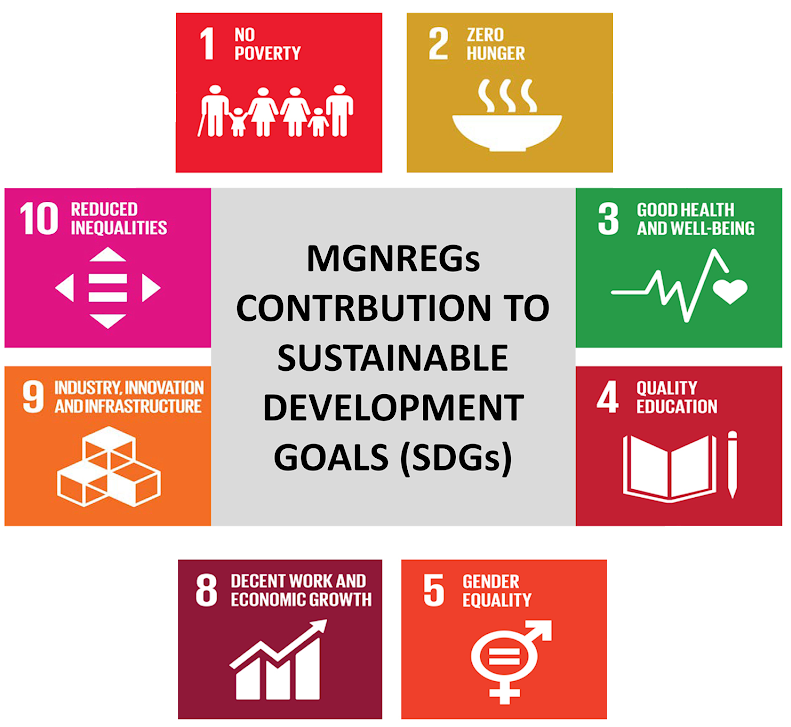Important Facts For Prelims
Decentralising MGNREGS
- 02 Nov 2022
- 5 min read
For Prelims: MGNREGA, Issues, Minimum Wages Act, 1948.
For Mains: Government Policies & Interventions
Why in News?
An internal study by the Ministry of Rural Development has suggested decentralisation of the Mahatma Gandhi National Rural Employment Guarantee Scheme (MGNREGS), allowing for more “flexibility” at the ground level.
What are the Findings of the Study?
- Issues:
- In the past few years, the fund management has been centralized instead of paying the Gram Sabhas an advance enabling them to decide the work they want to undertake.
- There is a chronic problem of delay in fund disbursal, where beneficiaries end up buying the construction material themselves to complete the projects.
- In Himachal Pradesh and Gujarat, the delay in wages was by three or four months and the material component was delayed by six months.
- MGNREGS wages were far below the market rate in many States, defeating the purpose of acting as a safety net.
- At present, the minimum wage of a farm labourer in Gujarat is RS 324.20, but the MGNREGS wage is Rs 229.
- The private contractors pay far more.
- Suggestions:
- There should be a greater diversification of permissible works instead of listing the types of permissible works, broad categories of works may be listed out and flexibility should be given at ground level to select the type of works as per broad categories.
- The gram sabhas can take into account the local conditions and the community’s requirements instead of chasing a target set for them.
- For making disbursal on time there should be revolving funds (an extra internal monetary pool) that can be utilised whenever there is a delay in the Central funds.
What is MGNREGA?
- About:
- MGNREGA, which was launched in 2005, is one of the largest work guarantee programmes in the world.
- The primary objective of the scheme is to guarantee 100 days of employment in every financial year to adult members of any rural household willing to do public work-related unskilled manual work.
- Legal Right to Work:
- Unlike earlier employment guarantee schemes, the act aims at addressing the causes of chronic poverty through a rights-based framework.
- At least one-third of beneficiaries have to be women.
- Wages must be paid according to the statutory minimum wages specified for agricultural labourers in the state under the Minimum Wages Act, 1948.
- Demand-Driven Scheme:
- The most important part of MGNREGA’s design is its legally-backed guarantee for any rural adult to get work within 15 days of demanding it, failing which an ‘unemployment allowance’ must be given.
- This demand-driven scheme enables the self-selection of workers.
- Decentralised Planning:
- There is an emphasis on strengthening the process of decentralisation by giving a significant role in Panchayati Raj Institutions (PRIs) in planning and implementing these works.
- The act mandates Gram sabhas to recommend the works that are to be undertaken and at least 50% of the works must be executed by them.
UPSC Civil Services Examination Previous Year Question:
Q. Among the following who are eligible to benefit from the “Mahatma Gandhi National Rural Employment Guarantee Act”? (2011)
(a) Adult members of only the scheduled caste and scheduled tribe households
(b) Adult members of below poverty line (BPL) households
(c) Adult members of households of all backward communities
(d) Adult members of any household
Ans: (d)






-min.jpg)